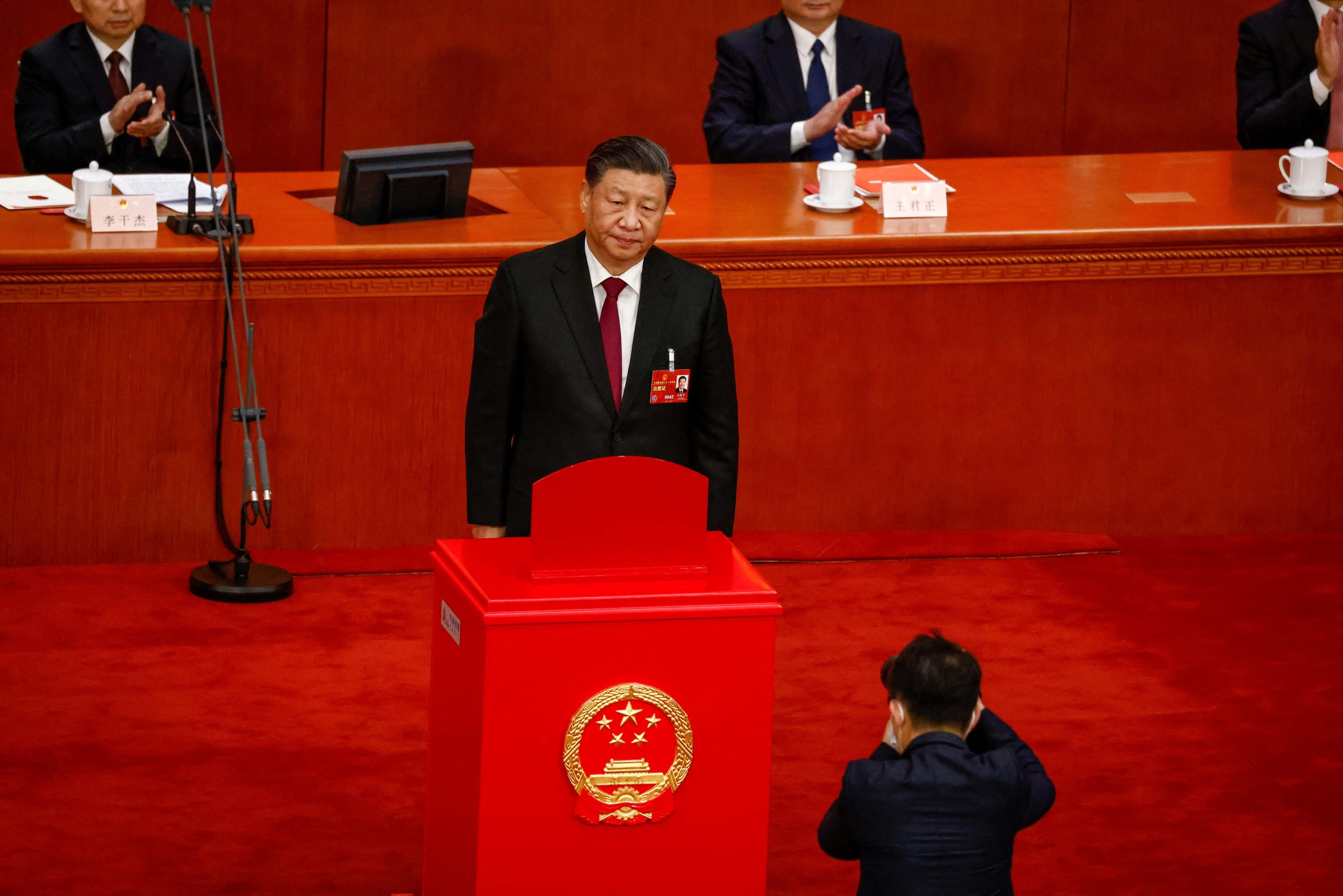
Trey Paul, FISM News
[elfsight_social_share_buttons id=”1″]
China’s top leader, Xi Jinping, is now serving a history-making third consecutive five-year term after being sworn in as president on Friday, and America is taking note.
The country’s most ceremonial legislature, the National People’s Congress, voted 2,952 to 0 to re-elect the 69-year-old who is now on track to stay in power for life.
Xi pledged under oath to build a “prosperous, strong, democratic, civilized, harmonious and great modern socialist country.”
China’s Xi Jinping was elected again for a record-breaking third term as president, at the end of a week of meetings for China’s two top political bodies, where he further tightened his control on the country https://t.co/kWVhUKfKXO pic.twitter.com/XK3OmfTB3O
— Reuters (@Reuters) March 10, 2023
This comes as no surprise since Xi was appointed China’s unchallenged leader during a meeting of the ruling Chinese Communist Party elites in October. Xi also secured his win by filling the top ranks of the ruling Communist Party with his own supporters since first taking office back in 2012.
Xi was also unanimously named commander of the People’s Liberation Army, which is the formal name for China’s military. The Chinese armed forces are led by the ruling political party.
Last week Xi called on his nation’s military to support its strength by bringing it to “world-class standards.” He made the comments during a speech to the Congress of Chinese Communist Party members and added the nation must bolster its “national strategic capabilities” in order to “systematically upgrade the country’s overall strength to cope with strategic risks, safeguard strategic interests and realize strategic objectives.”
This news adds to an already complex relationship between the U.S. and China. The Chinese government is also boosting its military spending this year by 7.2%.
After claiming that “the West” is trying to “contain and suppress China” during last week’s swearing-in ceremony, Xi seemed to take an aggressive stance on the United States of America. During an interview with FOX News, retired U.S. Army Lt. Col. Bob Maginnis said the Chinese communists “are very serious about what they’re doing and they’re trying to intimidate the world.”
Xi and his new Foreign Minister Qin Gang are setting quite a tense tone when it comes to relations with the U.S. There are already tensions over trade, technology, Taiwan, human rights, and Beijing’s refusal to criticize Russia’s invasion of Ukraine.
Qin warned about the possibility of U.S.-China problems erupting into something much more serious. “If the United States does not hit the brake, but continues to speed down the wrong path, no amount of guardrails can prevent derailing, and there surely will be conflict and confrontation,” Qin said in his first news conference since taking office last year.
President Xi Jinping also recently accused the United States of leading an international coalition to suppress China in a private meeting with members of China’s private sector.
“The Western countries led by the United States have implemented all-round containment and suppression on our country, bringing unprecedented severe challenges to our development,” Xi said. His comments were released by Xinhua News Agency, the Chinese Communist Party’s official news publication.
Russian President Vladimir Putin sent a letter to Xi congratulating him on his re-election. In it, Putin referred to Xi as his “friend” and seemed to celebrate their “strategic cooperation” and “fruitful” relationship.
“Dear friend, please accept sincere congratulations on the occasion of your reelection,” Putin said in the statement released by the Kremlin on Friday. “Russia highly values your personal contribution toward the strengthening of ties and strategic cooperation between our nations,” Putin wrote.
“I am certain that working together, we will ensure the development of fruitful Russian-Chinese cooperation in all sorts of different areas,” the letter went on. “We will continue to coordinate joint work on the most important regional and international issues.” The letter ended with a wish for good health and prosperity.
